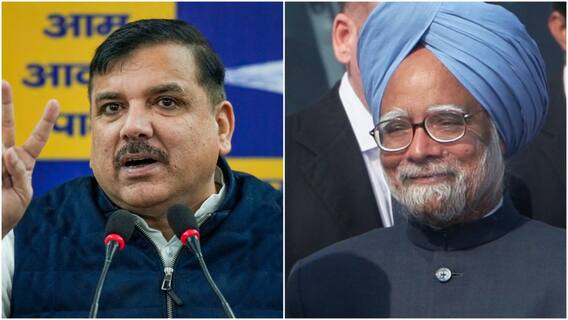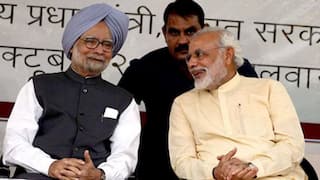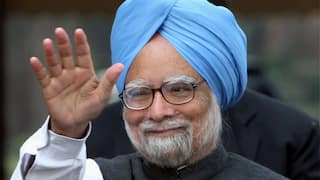Can Money Buy Happiness? New Study Says Yes, But Conditions Apply
The study found that on average, larger incomes are associated with ever-increasing levels of happiness, but the relationship is complex for certain groups.

People often believe that money brings happiness. Research has shown that money correlates with greater happiness, but plateaus beyond a certain level.
A study published in 2010, and conducted by Nobel laureate Daniel Kahneman and Angus Deaton had found that day-to-day happiness increased as annual income increased, but above $75,000, happiness levelled off and plateaued. Kahneman was awarded the 2002 Nobel Prize in Economic Sciences for having integrated insights from psychological research into economic science.
A study published in 2021, and conducted by University of Pennsylvania's Matthew Killingsworth found that happiness increased steadily with income well beyond $75,000, without evidence of a plateau.
Kahneman and Deaton had found that happiness, a measure of well-being, increased but then flattened somewhere between $60,000 and $90,000.
Meanwhile, Killingsworth observed a linear relation between happiness and the logarithm of income.
Since the two groups had opposing views, the researchers paired up to form an adversarial collaboration, and joined forces with Barbara Mellers from Penn Integrates Knowledge University. Mellers served as an arbiter, a person who settles disputes. An adversarial collaboration is one which aims to solve scientific disputes between different parties by bringing them together, along with a third-party mediator.
Larger incomes are linked with increasing levels of joy, but there is a catch
The study, conducted by Kahneman, Killingsworth and Mellers, found that on average, larger incomes are associated with ever-increasing levels of happiness, but the relationship is complex for certain groups. The study was recently published in the Proceedings of the National Academy of Sciences.
The researchers found that within the overall trend, an unhappy cohort within each income group shows a sharp spike in happiness up to $100,000 annually and then plateaus.
The flattening pattern is restricted to the least happy groups, who constitute 20 per cent of the population.
In a statement released by the University of Pennsylvania, Killingsworth said the study, in the simplest terms, suggests that for most people, larger incomes are associated with greater happiness. He also said that the exception is people who are financially well-off but unhappy. For instance, if one is rich and miserable, more money will not help, but for everyone else, more money is associated with higher happiness to varying degrees.
According to Mellers, emotional well-being and income are not connected by a single relationship, and the function differs for people with different levels of emotional well-being. She said for the least happy group, happiness rises with income until $100,000, then shows no further increase as income grows.
Mellers explained that for those in the middle range of emotional well-being, happiness increases linearly with income, and for the happiest group, the association between income and happiness accelerates above $100,000.
Happiness accelerates in the happiest group
In other words, happiness increases steadily with income among happier people, and accelerates in the happiest group.
According to the study, flattening is characterised by a threshold income, beyond which further increases are not associated with improved happiness.
The researchers formed an adversarial collaboration because their previous studies concluded differently.
For unhappy people, happiness does not increase with income beyond a certain threshold
The researchers hypothesised that both a happy majority and an unhappy minority exist. For the happy majority, happiness keeps increasing as more money comes in, while for the unhappy minority, happiness improves as income increases, but only up to a certain income threshold, beyond which there is no progress in joy levels.
What was wrong with the previous studies?
Killingsworth had collected information for his previous study through an app he created. The app is called 'Track Your Happiness'. The researchers looked for the flattening pattern in data from Killingsworth's study.
As part of Killingsworth's study, the app was made to ping participants several times a day, at random moments. The app asked the participants a variety of questions including how they felt on a scale from "very good" to "very bad".
Killingsworth took an average of the person's happiness and income, and drew conclusions about how the two variables were linked.
The researchers found that the 2010 study, which revealed that happiness plateaus beyond a certain income, had actually been measuring unhappiness in particular rather than happiness in general.
Killingsworth said it is easiest to understand with an example. He compared the scenario to a cognitive test for dementia that most healthy people pass easily.
Killingsworth said while such a test would detect the presence and severity of cognitive dysfunction, it would not reveal much about general intelligence because most healthy people would receive the same perfect score.
Similarly, Killingsworth explained, the 2010 data showed a plateau in happiness had mostly perfect scores. Therefore, the 2010 data tells us about the trend in the unhappy end of the happiness distribution, rather than the trend of happiness in general. Hence, it is important to look at the happiness trend for unhappy people.
Significance of the new study
The researchers looked at the happiness trend for unhappy people in the 2021 data, and found exactly the same pattern as was found in 2010. They observed that happiness rises relatively steeply with income and then plateaus.
According to Killingsworth, these findings have real-world implications, because they matter to individuals as they navigate career choices or weigh a larger income against other priorities in life.
Killingsworth concluded that money is just one of the determinations of happiness, but not the secret to happiness.
Trending News
Top Headlines





































